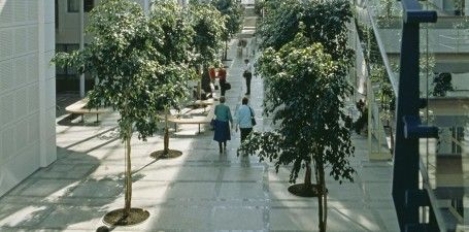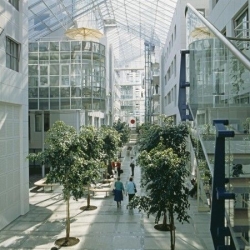To provide the best experiences, we use technologies like cookies to store and/or access device information. Consenting to these technologies will allow us to process data such as browsing behaviour or unique IDs on this site. Not consenting or withdrawing consent, may adversely affect certain features and functions.
The technical storage or access is strictly necessary for the legitimate purpose of enabling the use of a specific service explicitly requested by the subscriber or user, or for the sole purpose of carrying out the transmission of a communication over an electronic communications network.
The technical storage or access is necessary for the legitimate purpose of storing preferences that are not requested by the subscriber or user.
The technical storage or access that is used exclusively for statistical purposes.
The technical storage or access that is used exclusively for anonymous statistical purposes. Without a subpoena, voluntary compliance on the part of your Internet Service Provider, or additional records from a third party, information stored or retrieved for this purpose alone cannot usually be used to identify you.
The technical storage or access is required to create user profiles to send advertising, or to track the user on a website or across several websites for similar marketing purposes.
 Organisations that lack explicit norms around hybrid working can increase the likelihood of an employee leaving by 12 percent, according to a new report from Gartner [paywall]. The report claims that the most successful hybrid models encompass three main categories of explicit norms that increase visibility, enable flexibility, and foster connections. More →
Organisations that lack explicit norms around hybrid working can increase the likelihood of an employee leaving by 12 percent, according to a new report from Gartner [paywall]. The report claims that the most successful hybrid models encompass three main categories of explicit norms that increase visibility, enable flexibility, and foster connections. More →








 The digital edition of issue 14 of IN Magazine is now available to read free,
The digital edition of issue 14 of IN Magazine is now available to read free, 






 According to a new poll from
According to a new poll from 
 In 1989, Stephen Fry and Hugh Laurie, performed a TV sketch called Information. You can watch it below. It featured Stephen Fry sitting at a desk with a placard displaying the word “INFORMATION”. He asks, “Can I help you?” to which Hugh Laurie replies, “Oh, I would like some information, please”. Though, in the discussion, Hugh Laurie expects to get information without asking any questions, Stephen Fry explains that he has lots of information, such as “the average weight of a rabbit”. In response comes the statement, “Well, I didn’t know that, that there was an average weight of a rabbit!”
In 1989, Stephen Fry and Hugh Laurie, performed a TV sketch called Information. You can watch it below. It featured Stephen Fry sitting at a desk with a placard displaying the word “INFORMATION”. He asks, “Can I help you?” to which Hugh Laurie replies, “Oh, I would like some information, please”. Though, in the discussion, Hugh Laurie expects to get information without asking any questions, Stephen Fry explains that he has lots of information, such as “the average weight of a rabbit”. In response comes the statement, “Well, I didn’t know that, that there was an average weight of a rabbit!” 


 The Sustainable Design Collective, a ‘think tank’ group of leading workplace designers and specifiers, has announced a new Forum Day, together with industry awards, focussed on greater sustainability. Originally formed in January 2022, the Sustainable Design Collective hosts regular meetings to collaborate and discuss new opportunities to promote environmental and social responsibility within the office workplace. The group is now inviting conversations with fellow designers as well as suppliers and manufacturers.
The Sustainable Design Collective, a ‘think tank’ group of leading workplace designers and specifiers, has announced a new Forum Day, together with industry awards, focussed on greater sustainability. Originally formed in January 2022, the Sustainable Design Collective hosts regular meetings to collaborate and discuss new opportunities to promote environmental and social responsibility within the office workplace. The group is now inviting conversations with fellow designers as well as suppliers and manufacturers. 











April 10, 2023
IF AI can replace what you do without anybody noticing, the problem isn’t with the technology
by Mark Eltringham • Comment, Technology, Wellbeing